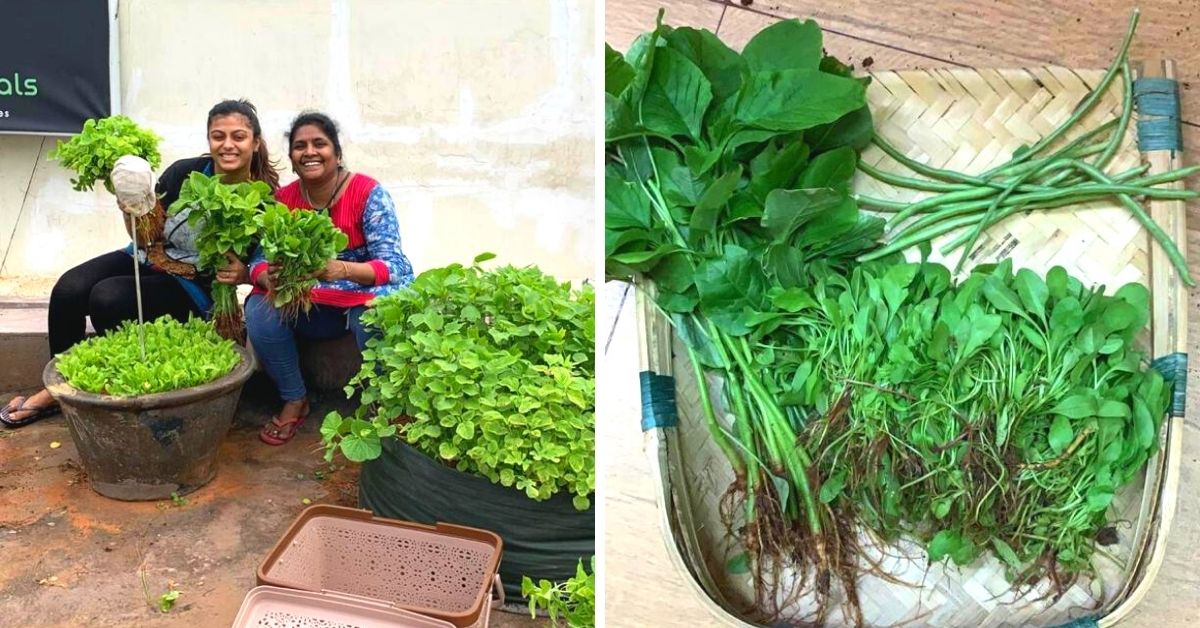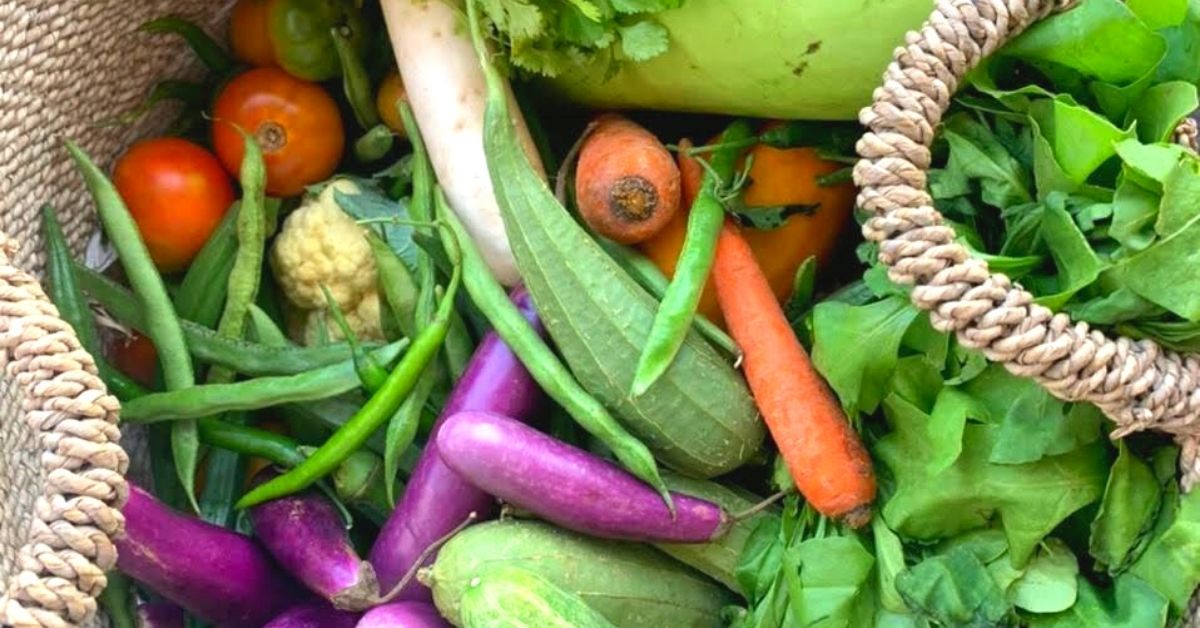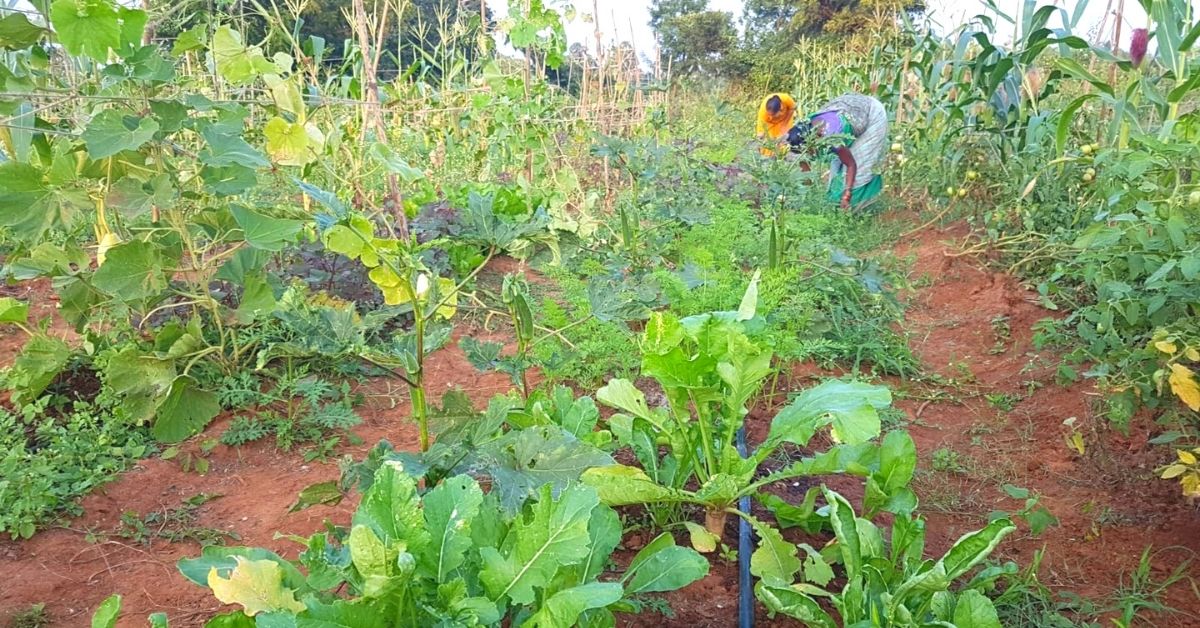For Sudharani, growing leafy vegetables at home during the lockdown was not enough to meet the needs of her family of six. When sourcing organic food became a challenge due to strict physical distancing restrictions, she turned towards a rather unique initiative.
She rented 600 square feet of land on the outskirts of the city at a monthly cost of Rs 2,400, and chose 12 varieties of vegetables. On her behalf, farmers grow the vegetables organically and deliver fresh produce to her every Saturday.
“Farming is an overwhelming concept for someone who is growing food at home. I don’t easily trust the organic produce available in the market,” Sudharani tells The Better India. “I wanted to expand farming, but lack of resources like land was a challenge.”

“The renting model is more viable. I get regular updates via WhatsApp about my harvest and the growing methods that farmers follow. It’s very convenient to have 7 kilos of fresh produce delivered directly from the farm to my house,” she notes, adding that she hopes to visit the farm once the lockdown restrictions ease.
Tulasi is another organic farming enthusiast who has rented a patch on the same farm. She visited the farm with her husband and two children to learn farming techniques a few months ago.
“It is important that my children know where our food is coming from. They should know that growing vegetables without chemicals or harmful pesticides is difficult, but possible. Our experience of sowing seeds, watering crops, and harvesting them as a family was wonderful,” she says.

Both Sudharani and Tulasi have rented the plots under an initiative ‘Urban Eco Farms’ started by Usha Raju, a nutritionist by profession and a gardening enthusiast by heart. Locally known as a ‘green crusader’ for her expertise on organic gardening, Usha started this initiative in October last year.
“I was flooded with requests from people asking me for tips on how to grow vegetables at home. They complained about lack of time, resources and expertise in agriculture, and asked if I could grow vegetables on their behalf,” Usha tells The Better India.
“So I came up with a subscription model to help them. I rented a farm from a friend, hired farm labourers, and trained them in organic methods of growing food on behalf of the consumers,” Usha says.
How the subscription model works

Between July and October 2020, Usha designed a model that requires the user to rent land for a minimum period of three months. A nuclear family (3-4 members) can rent 600 square feet of land. They then must select 12 vegetables out of 25, as per their consumption habits. These include eggplant, tomatoes, okra, beans, cucumber, ivy gourd, ridge gourd, bottle gourd, bitter gourd, drumstick, carrots, cabbage, cauliflower, chillies, coriander, and curry leaves, among others.
Once the model was ready, she began circulating it on social media.

Around 20 farm labourers take care of the farm and people can visit the plot to understand and learn sowing techniques, the technicalities of nurturing a crop, and harvesting. Usha, who often visits the farm to oversee the process, shares photos of the development and gives updates to the subscribers. She has been growing over 30 varieties of fruits and veggies on her 800 square-foot terrace for some years now. Her knowledge in composting and planting comes handy here.

At a monthly rent of Rs 2,400, the customers get everything, from land to seeds, labour, expertise and home delivery of 6-8 kilos of vegetables every weekend.
Tulasi says, “The cost is on the higher side, but at least it guarantees chemical-free food. We have renewed our subscription once and will continue doing so, as these vegetables are tastier and healthier. The colour of the tomatoes, brinjals and bitter gourd is also very different from their market counterparts.”
Close to 75 urban families are presently using the subscription model, which is eliminating issues such as lack of land, expertise and labour. However, more importantly, the initiative is helping more and more urban dwellers shift to chemical-free food. It is a win-win situation for farm labourers who are getting a stable income, as well as for customers who get fresh food.
Edited by Divya Sethu
No comments:
Post a Comment